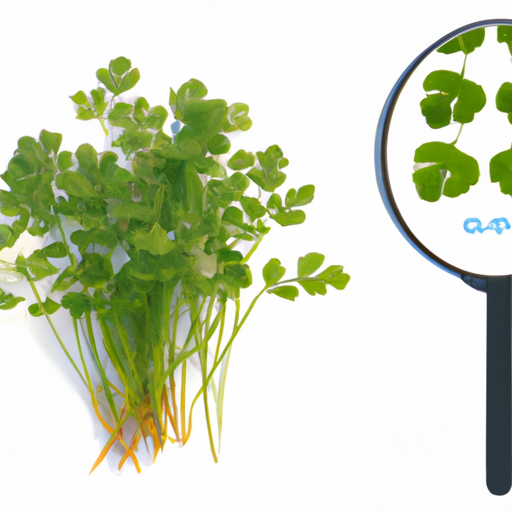I remember when I first discovered the countless health benefits of turmeric tea. It quickly became a staple in my daily routine, providing me with a natural boost of energy and helping to reduce inflammation in my body. However, now that I am pregnant, I am left wondering whether or not it is safe to continue consuming turmeric tea.
If you are also wondering whether you can take turmeric tea while pregnant, you are not alone. Turmeric tea has become increasingly popular as a natural remedy for a variety of health concerns, but it is important to consider the potential risks and benefits before consuming it during pregnancy.
In this article, we will explore the latest research on turmeric tea and pregnancy, as well as provide some helpful tips for making informed decisions about your health during this important time.
Key Takeaways
- Turmeric tea has anti-inflammatory properties, which can provide relief from joint pain and swelling during pregnancy.
- Excessive consumption of turmeric tea during pregnancy can stimulate uterine contractions, leading to premature labor or miscarriage, and interfere with iron absorption.
- Safe herbal remedies during pregnancy include red raspberry leaf, chamomile, peppermint, ginger tea, and lemon balm tea.
- Pregnant women should consult with their healthcare provider and limit their intake of turmeric tea to one cup per day, using high-quality, organic turmeric powder and fresh ginger root, and avoiding artificial sweeteners or additives.
Understanding Turmeric Tea and Its Benefits
Turmeric tea, known for its anti-inflammatory properties, can be a beneficial addition to a pregnant woman’s diet if consumed in moderation. Turmeric’s active ingredient, curcumin, has been shown to reduce inflammation in the body. This makes turmeric tea an ideal drink for pregnant women who may be experiencing inflammation-related discomforts such as joint pain and swelling.
Additionally, turmeric tea is a natural antioxidant, which is important for maintaining a healthy immune system during pregnancy. Turmeric tea for inflammation relief has been used for centuries in traditional medicine. It’s also believed to have other health benefits such as improving digestion and reducing the risk of heart disease.
However, pregnant women should be cautious when consuming turmeric tea, as excessive amounts may have adverse effects on the developing fetus. Hence, it’s important to understand the risks of consuming turmeric tea during pregnancy.
Risks of Consuming Turmeric Tea During Pregnancy
Pregnant women should be cautious about consuming certain beverages that may have potential risks for both the mother and the developing fetus. Turmeric tea, in particular, has health implications that should be taken into consideration.
Although turmeric is known for its anti-inflammatory and antioxidant properties, it may have side effects that could be harmful during pregnancy. One of the main concerns with consuming turmeric tea during pregnancy is its potential to stimulate uterine contractions, which could lead to premature labor or miscarriage.
Additionally, excessive intake of turmeric may interfere with iron absorption, which could lead to anemia. Therefore, it’s important to follow dosage recommendations and consult with your healthcare provider before consuming turmeric tea during pregnancy.
Consult with Your Healthcare Provider
As an expecting mother, it’s essential to prioritize the health of both you and your growing baby. That’s why seeking medical advice before taking any herbal remedies, such as turmeric tea, is crucial.
Discussing these remedies with your healthcare provider can help determine potential risks and ensure safe consumption during pregnancy.
Importance of Medical Advice
Before making any dietary decisions during your pregnancy, it’s important to seek medical advice from your healthcare provider. Your healthcare provider can help you understand the importance of medical advice and the risks associated with making decisions without consulting them first.
They can provide you with the information you need to make informed decisions about your health and the health of your baby. While turmeric tea has several health benefits, it’s important to discuss herbal remedies with your healthcare provider before consuming them during pregnancy.
Your healthcare provider can help you understand the potential risks and benefits of turmeric tea during pregnancy. They can also guide you on the appropriate dosage and the best time to consume it.
Remember, seeking medical advice before making any dietary decisions is the best way to ensure a healthy pregnancy.
Discussing Herbal Remedies
When it comes to using herbal remedies during pregnancy, it’s important to have an open and honest discussion with your healthcare provider to ensure the safety of both you and your baby. While some herbal remedies may be safe, others can have harmful effects on pregnancy. For instance, certain herbs such as blue cohosh and black cohosh can induce labor, which can be dangerous if done before the baby is ready to be born. Additionally, some natural remedies for menstrual cramps may not be safe during pregnancy, such as dong quai or angelica root.
To help guide your conversation with your healthcare provider, you can use the following table as a reference for some common herbal remedies and their potential effects on pregnancy. It’s important to note that this table is not exhaustive, and that there may be other herbal remedies not included that could have an impact on pregnancy. By having an open and honest conversation with your healthcare provider, you can make an informed decision about whether or not to use herbal remedies during pregnancy.
| Herbal Remedy | Potential Effects on Pregnancy | Safe for Use During Pregnancy? |
|---|---|---|
| Red Raspberry Leaf | May strengthen the uterus and improve labor outcomes | Generally considered safe |
| Chamomile | Helps with relaxation and anxiety | Generally considered safe |
| Echinacea | Boosts the immune system | Not recommended |
| Licorice Root | May increase blood pressure and lead to preterm labor | Not recommended |
| Peppermint | Helps with nausea and digestive issues | Generally considered safe |
Consider alternative herbal teas that are safe to consume during pregnancy, such as ginger tea or lemon balm tea. These teas can provide similar benefits as other herbal remedies without the potential risks to pregnancy. As always, it’s important to consult with your healthcare provider before using any herbal remedies during pregnancy.
Consider Alternative Herbal Teas
When I was pregnant, I wanted to make sure that everything I consumed was safe for my baby’s health.
One alternative herbal tea that I discovered was ginger tea, which is generally considered safe during pregnancy. Ginger tea has been shown to help with nausea and vomiting, which is a common symptom during the first trimester.
I highly recommend considering alternative herbal teas to ensure a healthy pregnancy.
Safe Options for Pregnancy
Consider safe options for pregnancy, such as drinking turmeric tea in moderation, to support overall health and wellness. There are many safe supplements and prenatal vitamins available for pregnant women, but adding turmeric tea to your diet can provide additional benefits.
Here are three safe options for pregnancy:
-
Turmeric tea can help reduce inflammation and promote healthy digestion. It contains curcumin, a compound with antioxidant and anti-inflammatory properties that can support overall health.
-
Drinking turmeric tea in moderation can also help boost the immune system and prevent infections during pregnancy. It can also help alleviate common pregnancy symptoms, such as nausea and bloating.
-
When drinking turmeric tea during pregnancy, it’s important to use caution and moderation. Consult with your healthcare provider and limit your intake to one cup a day to avoid any potential risks.
Transitioning into the subsequent section, ginger tea is another herbal tea that can provide many benefits during pregnancy.
Benefits of Ginger Tea
Ginger tea has been said to provide numerous benefits for pregnant women, including reducing nausea and vomiting. According to a study published in the American Journal of Obstetrics and Gynecology, ginger has been found to be a safe and effective treatment for nausea and vomiting during pregnancy. In addition, ginger tea has anti-inflammatory properties that can help alleviate joint pain and swelling, which is common during pregnancy.
To further emphasize the benefits of ginger tea during pregnancy, here is a table that outlines some of its main advantages:
| Benefits of Ginger Tea During Pregnancy | ||
|---|---|---|
| Reduces nausea and vomiting | Helps alleviate joint pain and swelling | Contains anti-inflammatory properties |
While ginger tea can be a great addition to a pregnant woman’s diet, it’s important to remember that moderation is key. Consuming too much ginger can cause heartburn, diarrhea, and other gastrointestinal issues. Therefore, it’s recommended that pregnant women limit their intake of ginger to no more than 1 gram per day.
Moderation is Key
You should aim for moderation when drinking turmeric tea during pregnancy, as excessive consumption may have negative effects on your health and the health of your unborn baby. While turmeric tea is generally considered safe during pregnancy, it is important to balance cravings with a healthy diet and stay active to avoid excessive weight gain.
Here are some tips to help you moderate your turmeric tea intake:
- Start with a small amount of turmeric tea and gradually increase the amount over time.
- Limit your intake to no more than two cups of turmeric tea per day.
- Avoid adding large amounts of honey or other sweeteners to your turmeric tea, as these can increase your calorie intake.
- Drink plenty of water throughout the day to stay hydrated.
- Talk to your doctor or a registered dietitian if you have any concerns about drinking turmeric tea during pregnancy.
It’s always best to err on the side of caution, especially when it comes to your health and the health of your baby. In the next section, we’ll discuss some precautions to take when preparing turmeric tea to ensure that it’s safe to consume during pregnancy.
Precautions When Preparing Turmeric Tea
To ensure the safety of your unborn baby, it’s important to be mindful of the ingredients and preparation methods used when making turmeric tea. While turmeric is generally considered safe for consumption during pregnancy, it’s always wise to take precautions.
Some tips to keep in mind include using high-quality, organic turmeric powder, as well as fresh ginger root, which can help alleviate nausea and other pregnancy-related symptoms. When preparing turmeric tea, it’s important to avoid adding any potentially harmful ingredients, such as artificial sweeteners or additives.
Instead, opt for natural sweeteners like honey or agave, and consider adding other beneficial herbs and spices, such as cinnamon or cardamom. By taking these precautions, you can enjoy the many health benefits of turmeric tea during pregnancy without any unnecessary risks.
Remember, paying attention to the ingredients and preparation methods used is crucial for ensuring the safety of both you and your developing baby.
Pay Attention to Your Body
As your body changes and grows throughout pregnancy, it’s important to listen to its signals and adjust accordingly. This includes paying attention to any symptoms that may arise and altering your diet accordingly. Some common pregnancy symptoms that may affect your ability to consume turmeric tea include morning sickness, heartburn, and diarrhea.
To help you better understand how your body may react to turmeric tea during pregnancy, refer to the table below. It outlines potential symptoms that may arise and offers suggestions for how to adjust your consumption accordingly. However, it’s important to remember that every woman’s body and pregnancy is unique, so it’s always best to consult with your healthcare provider before making any significant changes to your diet.
| Symptom | Consumption Adjustment |
|---|---|
| Morning sickness | Try consuming turmeric tea in smaller amounts throughout the day rather than all at once |
| Heartburn | Consider consuming turmeric tea with a meal or snack to help reduce stomach acid |
| Diarrhea | Limit your consumption of turmeric tea or avoid it altogether until symptoms subside |
It’s important to take a holistic approach to your diet during pregnancy and listen to your body’s signals. While turmeric tea may offer potential health benefits, it’s important to be mindful of any symptoms you may experience and adjust accordingly. In the next section, we will discuss other foods to avoid during pregnancy to ensure a healthy and safe pregnancy.
Other Foods to Avoid During Pregnancy
Funny enough, there are some delicious foods that are off-limits during pregnancy for the health and safety of both mother and baby. It’s important to pay attention to what you eat and avoid certain foods that may cause harm.
Here are three foods to avoid during pregnancy:
-
Raw or undercooked meat: Raw or undercooked meat and poultry may contain harmful bacteria such as salmonella and E. coli. These bacteria can cause food poisoning and may harm the development of the baby.
-
Certain fish: Some fish, such as swordfish, shark, and king mackerel, contain high levels of mercury. Mercury can harm the developing nervous system of the baby.
-
Unpasteurized dairy products: Unpasteurized dairy products, such as soft cheeses and raw milk, may contain harmful bacteria that can cause food poisoning. It’s important to choose pasteurized dairy products for a safe and nutritious pregnancy diet.
It’s important to note that while there are certain foods to avoid during pregnancy, there are also many nutritious pregnancy foods to enjoy. A healthy and balanced diet during pregnancy can provide essential nutrients for the growth and development of the baby.
In the next section, we’ll discuss the benefits of a healthy pregnancy diet.
Benefits of a Healthy Pregnancy Diet
Eating a healthy pregnancy diet can provide you and your growing baby with essential nutrients that support healthy growth and development. It’s important to consume foods that are rich in protein, healthy fats, complex carbohydrates, vitamins, and minerals. These nutrients are essential for the development of your baby’s brain, bones, and organs.
It’s also important to avoid foods that may be harmful to your baby’s health. Certain foods like raw or undercooked meats, fish, and eggs may contain harmful bacteria and should be avoided. Alcohol, caffeine, and high-mercury fish should also be avoided during pregnancy.
Eating a healthy pregnancy diet and avoiding harmful foods can help ensure that you and your baby are getting the nutrients necessary for a healthy pregnancy and a healthy baby.
Frequently Asked Questions
Can turmeric tea be harmful to the baby during pregnancy?
As a soon-to-be mother, I understand the concern about potential risks to the baby during pregnancy. However, studies show that turmeric tea has several benefits, including reducing inflammation and aiding digestion. It’s important to consult with your doctor before incorporating it into your diet.
Is it safe to consume turmeric tea in the first trimester of pregnancy?
During my first trimester, I researched the safety of consuming turmeric tea. While it has potential benefits, precautions should be taken due to its blood-thinning properties and potential impact on hormone levels. Consult with a healthcare professional before consuming.
Can turmeric tea help with morning sickness during pregnancy?
Turmeric tea benefits pregnant women by reducing inflammation and aiding digestion. It may also alleviate morning sickness, but there is limited evidence to support this claim. Consult with a healthcare provider before trying turmeric tea recipes during pregnancy.
What are the potential side effects of drinking turmeric tea while pregnant?
I wouldn’t recommend drinking turmeric tea during pregnancy due to the potential risks. High doses of turmeric may stimulate contractions and increase the risk of miscarriage. Consult with your doctor for dosage recommendations.
Are there any interactions between turmeric tea and prenatal vitamins or other medications?
It is important to consider possible drug interactions and prenatal vitamin compatibility when taking turmeric tea during pregnancy. Consult with a healthcare provider to ensure safe consumption of this herbal supplement.
Conclusion
In conclusion, while turmeric tea offers many health benefits, it’s important to exercise caution when consuming it during pregnancy. As a pregnant woman, it’s best to consult with your healthcare provider before adding turmeric tea to your diet. If you do decide to drink it, do so in moderation and pay attention to any adverse reactions your body may have.
Interestingly, a study conducted by the American Pregnancy Association found that only 22% of pregnant women consult with their healthcare provider before taking herbal supplements. This statistic highlights the importance of seeking medical advice before consuming any herbal teas or supplements during pregnancy.
By prioritizing the health and safety of both you and your growing baby, you can make informed decisions about your diet and ensure a healthy pregnancy. Remember, a balanced and nutritious diet is the foundation of a healthy pregnancy, and incorporating a variety of fruits, vegetables, and lean proteins can provide the necessary nutrients for you and your baby’s growth and development.










